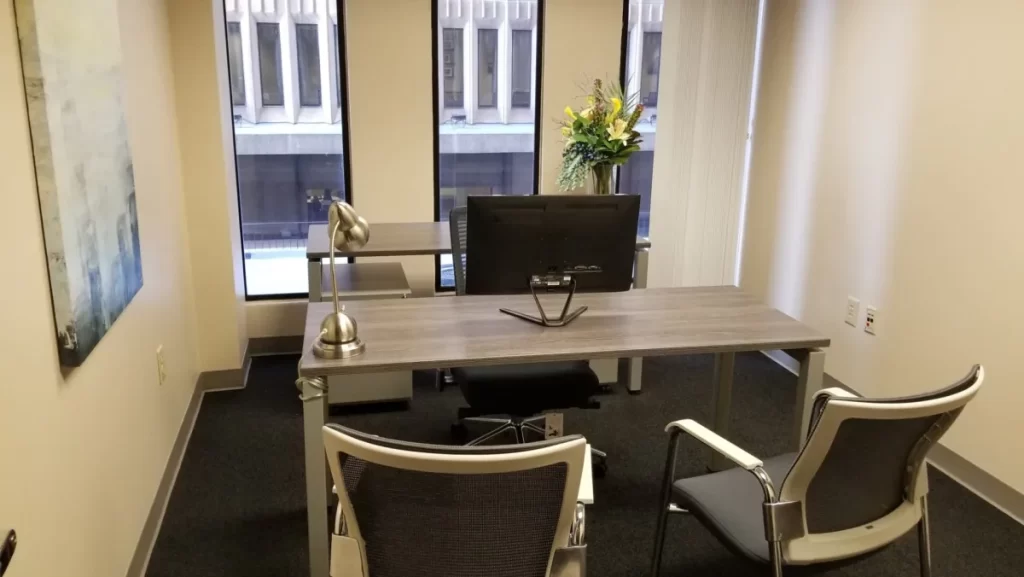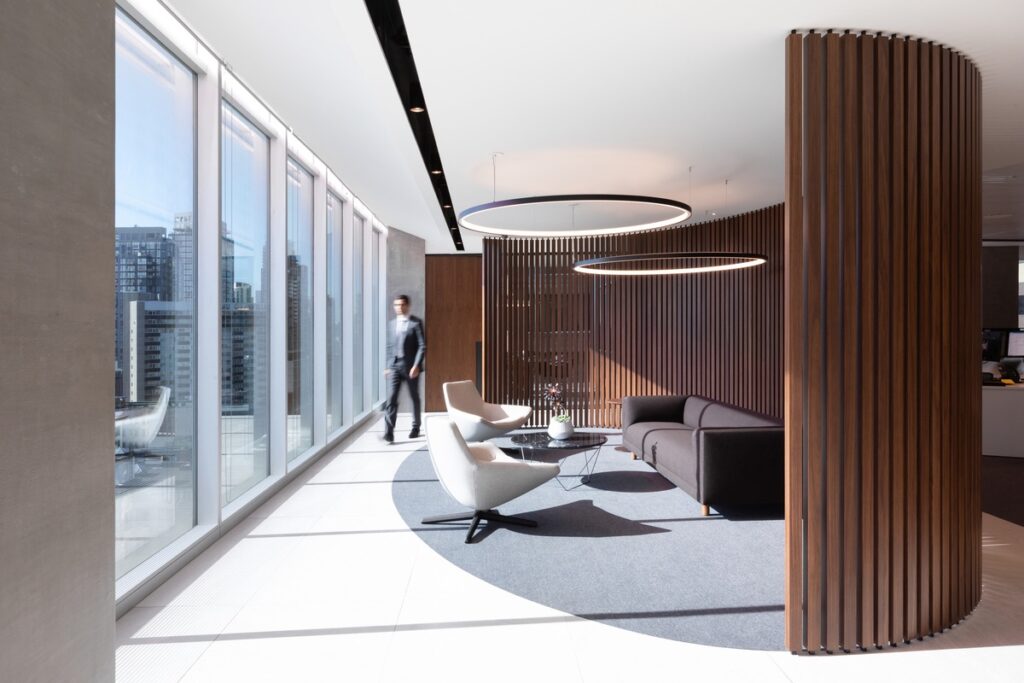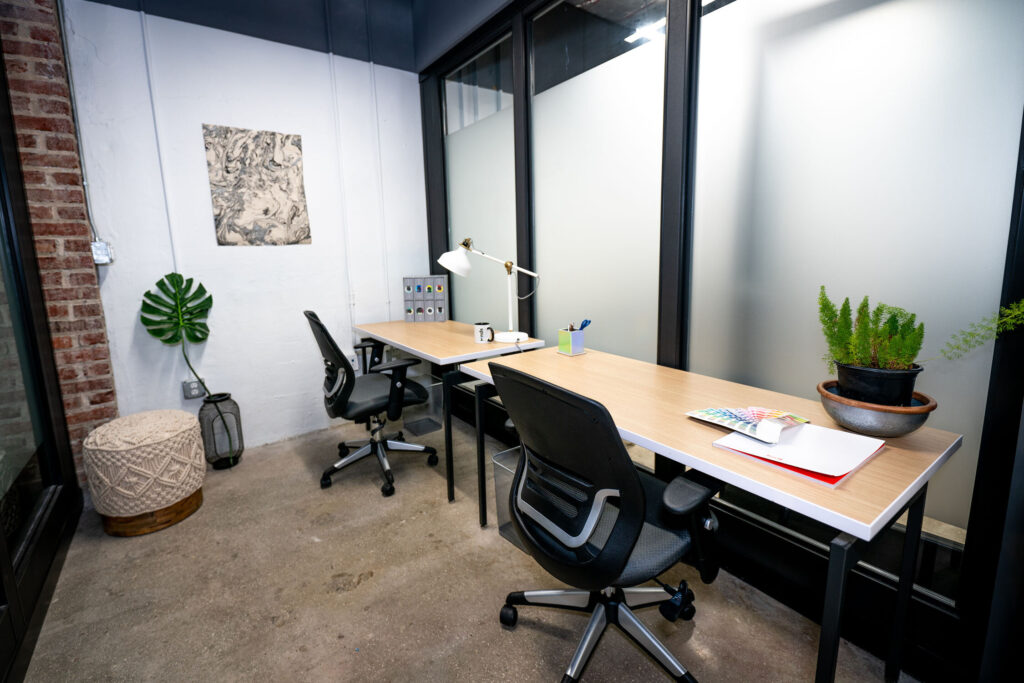Having a private office can be a great way to improve your productivity and focus on your work. However, transitioning into a private office can be daunting, especially if you’re unsure where to start. This article will guide you through the process of finding, setting up, as well as how to transition to a private office space, including researching available options, determining a budget and location, reviewing lease agreements, and notifying colleagues and clients.
By following these steps, you’ll be well on your way to transition to a private office.
What Is A Private Office?

A private office is a dedicated space that is used for work or business purposes. It is typically a separate room within an office building or other commercial property and is used by an individual or a small group of people.
Private offices typically include a desk, chair, other office furniture, and basic office equipment like a computer, phone, and printer.
They may also include additional features such as natural light, a window, and a door that can be closed for privacy. The main benefit of a private office is that it provides a dedicated, quiet, and private space to work, which can increase productivity and focus.
Why Should I Transition Into A Private Office?
When you transition to a private office, you get several benefits for your business and personal life, such as increased productivity, professionalism, control over the environment, personalization, a sense of stability and permanence, and improved work-life balance.
A private office is free from distractions and interruptions, provides a more professional environment to conduct meetings and client visits, allows you to customize the space to your liking, reflects your business’s brand and values, and provides a sense of stability and permanence for building relationships and creating a sense of identity for your business.
If you feel that a private office would benefit your business and personal life, it may be worth considering making the transition.
Steps To Successfully Transition To A Private Office

Looking to transition to a private office? Follow the steps below:
1. Identify your need for a private office
The first step to transition to a private office is to consider why and how it will benefit you and your work. For example, if you need a dedicated space to focus on your work without distractions or a professional space to meet clients, a private office may be the best option for you.
2. Research available options
The second step to transition to a private office is to look into different types of private office spaces, such as coworking spaces, executive suites, or traditional office buildings. Consider factors such as cost, location, and amenities when researching different options. You might want to visit different places and check which one fits your needs best.
CHURCHGATE offers the best private office to suit your needs. Do you want to transition to a private office of your dreams? Book a tour with us today and secure your business success.
3. Determine budget and location
The third step to transition to a private office is to decide on a budget for your private office and consider the location that best suits your needs. You must consider the rent price, taxes, and other expenses. Also, think about the location and the distance from your house, the parking situation, and the transportation.
4. Review lease agreements
The fourth step to transition to a private office is to carefully review and understand the terms of the lease agreement before signing it. Ensure you understand the terms, including the length of the lease, rent price, and any penalties for breaking the lease early.
5. Set up and decorate the office
The fifth step to transition to a private office is to set up and decorate. Once you have secured your private office space, set it up and decorate it to your liking. You will have to think about the furniture, the internet, the phone line, and the security.
6. Notify colleagues and clients
The next thing is to let your colleagues and clients know about your new private office location and update your contact information. Update your business cards and also your website and social media accounts.
7. Move in and start working
The last thing you do when you transition to a private office is to move in and start working. Move in and start working in your new private office. Enjoy the peace, privacy, and productivity of your new office space.
The Difference Between A Public Office And A Private Office

If you have been in a public office, it might be hard to adapt when you transition to a private office. Understanding their differences will help you make informed decisions about your office space needs.
1. Privacy
A private office is typically a separate room within an office building or other commercial property and is used by an individual or a small group of people. It provides a dedicated and private workplace where you can control the level of noise, light, and temperature. You can also have a door that can be closed for total privacy. On the other hand, a public office, such as an open-plan office or a shared workspace, is open to all and lacks privacy. There is little to no separation between workstations, and people can easily overhear conversations or see computer screens.
2. Control over the environment
In a private office, you have more control over the environment, including temperature, lighting, and noise level. You can customize the space to your liking and create the ideal working environment for you.
In a public office, these factors may be out of your control and not optimal for your working style or preferences. For example, in an open-plan office, noise levels may be high, and distractions may be more frequent.
3. Professionalism
A private office provides a more professional environment for conducting meetings and client visits, as it allows you to have a dedicated space representing your business and giving your clients a sense of stability.
On the other hand, a public office may lack the same level of professionalism, as it may not have a dedicated space for meetings, and it may not convey a sense of permanence to your clients.
4. Personalization
You can personalize and decorate a private office to your liking, reflecting your business’s brand and values. You can add personal touches such as pictures, plants, or other decorations. Public office spaces usually have a set layout and design, and personalization is often limited.
5. Stability
A private office provides stability and permanence, which can be beneficial for building relationships with clients and colleagues and creating a sense of identity for your business.
On the other hand, a public office may feel temporary and less established, making it harder to build relationships and establish a sense of identity for your business.
The Benefits You Will Enjoy When You Transition To A Private Office

The main benefit of a private office over a public office is the increased level of privacy and autonomy. With a private office, you have your own dedicated space that is separate from other people and distractions. This can help to increase your focus and productivity, allowing you to get more work done in less time.
The benefits you will get when you transition to a private office are highlighted below:
1. Increased Privacy
When you transition to a private office, you get increased privacy. With your own dedicated space, you can work without distractions from other people. This can help to increase your focus and productivity, allowing you to get more work done in less time.
2. Professional Environment
A private office also provides a more professional environment for meetings, client visits, and video conferencing. It also allows you to personalize and decorate the office to your liking, creating a space representing your business’s brand and values.
3. Control over the environment
Another benefit when transitioning to a private office is more control over your environment. You can control your office’s temperature, lighting, and noise level, which can help create a more comfortable and conducive working environment.
4. Sense of Stability and Permanence
A private office also provides stability and permanence, which can be beneficial for building relationships with clients and colleagues and creating a sense of identity for your business.
5. Reduced Distractions
In contrast, public office spaces, such as open-plan offices, shared spaces, or hot desking, can be loud and distracting, making it difficult to focus on work. They also lack privacy and autonomy. A private office allows you to have a quiet and dedicated space to work.
Conclusion On How To Successfully Transition To A Private Office
In conclusion, transitioning into a private office can be a big step in your professional journey, but it doesn’t have to be difficult.
By identifying your needs, researching available options, determining a budget and location, reviewing lease agreements, setting up and decorating the office, notifying colleagues and clients, and moving in, you can make the process as smooth and seamless as possible.
With a private office, you’ll have a dedicated space to focus on your work, meet clients, and grow your business.
So don’t be afraid to take the leap and transition to a private office today!
CHURCHGATE is a pristine real estate firm that promotes business culture and excellence. We are your one-stop firm for awe-inspiring office spaces and business properties.
Book a tour with us today and secure your business future.





